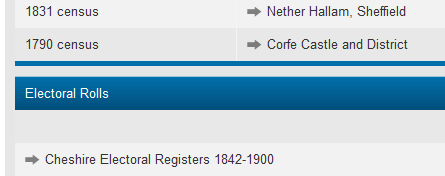Trying to find historical data using family history databases
I'm trying to find out more radicals and men arrested in 1798 and 1817. The Home Office papers contain lists of their names and addresses, so I want to cross-check whether they lived where they said they lived.
As this period is before the detailed 1841 and 1851 censuses, I'm reliant on other family history databases to cross check the names and addresses. I'm mainly using www.findmypast.co.uk/ which has the censuses but also many parish records, muster lists, prison lists, and other sources that the most well-known family history site, www.ancestry.co.uk does not.
The family history boom and the digitisation of useful resources has been a great help to historians. There are some disadvantages however:
- cost - part of the purpose of these sites is to make money. Of course it costs to keep these sites running, but most of the sources have always been available in local libraries for free. You're paying much more for easy access from your living room rather than the bus fare to the library. University libraries often however don't have subscriptions, so you have to take out an individual subscription (nearly a tenner a month for findmypast, and £18 for ancestry).
- apart from the census, they're not comprehensive - many of the resources rely on the enthusiasm and effort of local history societies and family historians to transcribe and catalogue them. So hence in findmypast, you can get the confirmation records of Wrightington, and the landtax for Billingshurst, the 1831 census for Nether Hallam, and the rate books for Manchester, Plymouth, Southwark and Westminster, but nowhere else.

- more importantly, the search facility has deconstructed the archive structure and reconstructed it by name rather than place - This is the most intriguing feature of digital resources that are shaped by the needs of family historians. Their main purpose and their main feature of their search facility is to search by name. But this often completely deconstructs the original order of the primary source, which is normally organised by place. And the search facility therefore makes it very hard for academic historians who are more likely to search for place rather than name.
Now online, however, it's more complicated. Luckily I can search 'no name' with the street in findmypast, and it comes up with everyone who lived in the street, though I have to go through an extra step of just clicking on a random name to see the original image. But in ancestry it is much harder to do this.
- finally, mispelled names. I'm particularly interested in Irish names. Interestingly, I'm finding that whoever wrote the names down did so phonetically. So 'Ryley' is spelled 'Royley', and 'Magee' is spelled 'Miggy'. I can just see the ennumerators coming across some gruff Irishmen and trying to decipher their accent.


Comments
Post a Comment